Are you a fan of the popular and delicious boba drinks, also known as bubble tea? These sweet and chewy treats have taken the world by storm, but have you ever wondered if your canine companion can enjoy boba too? In this blog post, we will dive deep into the world of boba, its ingredients, and most importantly, answer the burning question: Can dogs eat boba? As responsible pet owners, it’s crucial to understand which human foods are safe for our furry friends and which ones could pose potential health risks. Read on to discover the answer and learn more about pet food safety, so you can keep your dog happy and healthy!
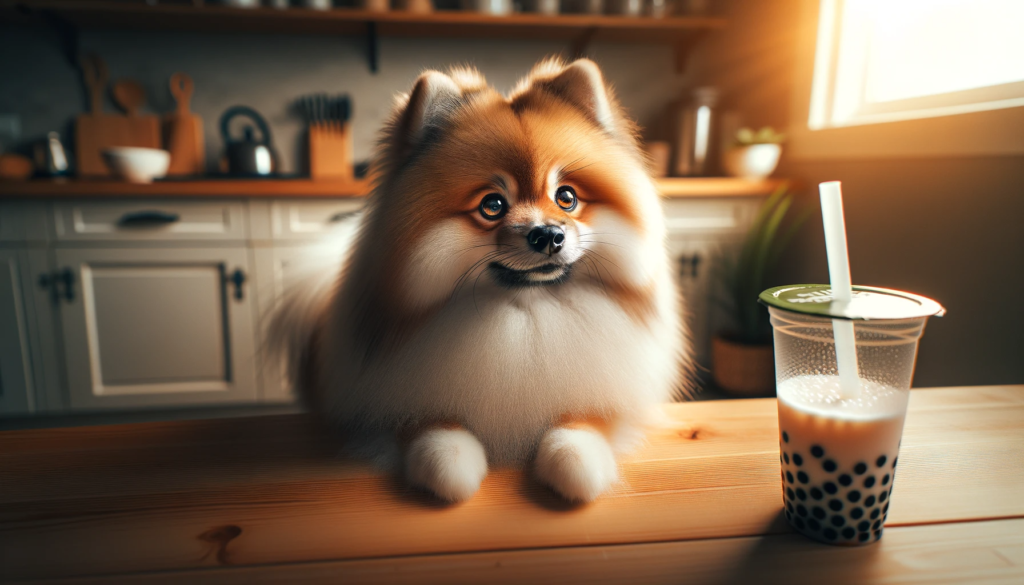
What is Boba?
Bubble tea, or boba, has taken the world by storm with its fun, chewy tapioca pearls and endless flavor options. Boba originated in Taiwan back in the 1980s and has since won the hearts of millions across the globe. But what exactly is boba?
Boba is a tea-based drink, usually combined with milk or fruit flavors and sweetened with sugar or syrup. The star of the show, however, is the small, chewy tapioca pearls that sit at the bottom of the cup. These pearls are made from tapioca starch, which comes from the roots of the cassava plant. To create the pearls, the starch is processed into little balls, boiled in water, and sweetened with sugar.
Boba drinks come in an incredible variety of flavors, from the classic milk tea to fruity concoctions. There are even some more adventurous options like taro, matcha, or salted cheese toppings. The boba craze has also inspired a range of other treats, such as ice cream, cakes, and puddings. The unique taste and texture of boba have made it a hit with people of all ages.
Can Dogs Eat Boba? The Answer
When it comes to our pups and their diet, it’s essential to be cautious about the foods we share. So, can dogs eat boba? The short answer is no, dogs should not eat boba.
While the tea and some flavorings in boba drinks may not be harmful to dogs, the pearls themselves can pose several risks to their health. Firstly, the chewy texture of the pearls may be a choking hazard, especially for smaller dogs. Additionally, if a dog swallows multiple pearls, they may cause gastrointestinal blockages, leading to severe discomfort and potential complications.
Furthermore, boba drinks are typically high in sugar, which is not suitable for dogs. Excessive sugar intake can lead to weight gain, dental problems, and even diabetes in dogs. Certain flavorings and additives in boba drinks may also cause digestive issues or allergic reactions in some pets.
While boba drinks may be a tasty treat for humans, they are not suitable for dogs. To keep your canine companion safe and healthy, it’s best to stick to dog-friendly treats.
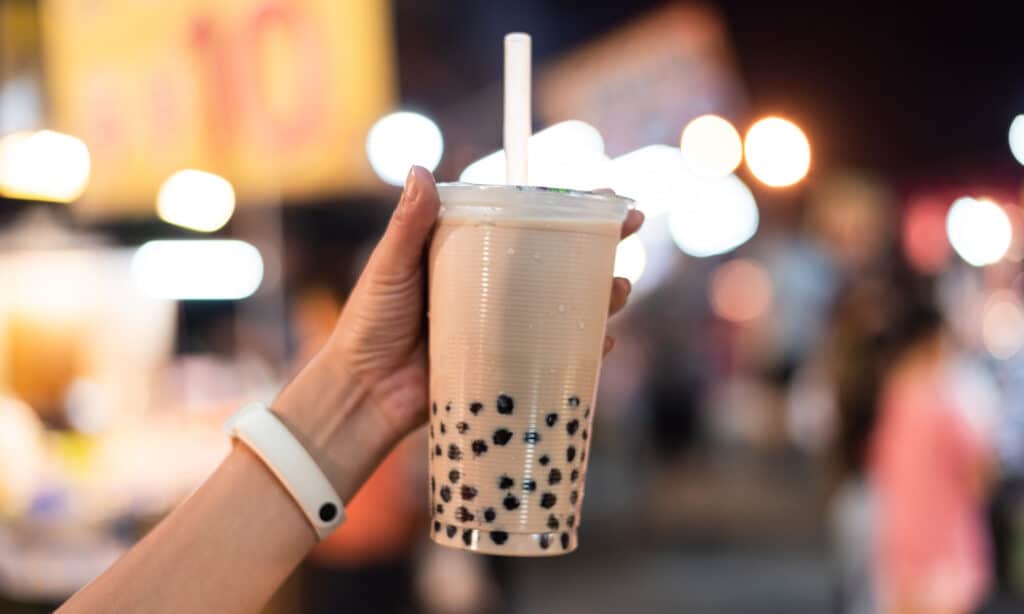
Health Concerns for Dogs Consuming Boba
Feeding boba to your dog can lead to several health concerns. It’s important to be aware of these risks to ensure the safety and well-being of your pet. Here are some of the primary health concerns associated with dogs consuming boba:
- Choking hazards and gastrointestinal blockage: The chewy tapioca pearls in boba can pose a choking hazard, particularly for small dogs. If your dog manages to swallow the pearls without choking, they may still cause gastrointestinal blockages. These blockages can lead to abdominal pain, vomiting, and constipation. In severe cases, may require surgery to remove the obstruction.
- Allergic reactions and sensitivity to ingredients: Boba drinks often contain flavorings, additives, and milk products that dogs might be sensitive to. Ingestion of these ingredients can cause gastrointestinal upset, skin irritations, or more severe allergic reactions in dogs. It’s best to avoid giving your dog boba to prevent exposure to these potentially harmful ingredients.
- High sugar content and its impact on dogs’ health: Boba drinks are typically high in sugar, which can be detrimental to your dog’s health. Excessive sugar consumption in dogs can lead to weight gain, dental issues, and an increased risk of diabetes. Dogs don’t need added sugar in their diet. It’s crucial to avoid giving treats with high sugar content to maintain their overall health.
It’s important to be aware of the health concerns related to dogs consuming boba. To ensure your pet’s safety and well-being, provide them with dog-friendly treats. Also, avoid sharing boba or other human foods that may pose risks to their health.
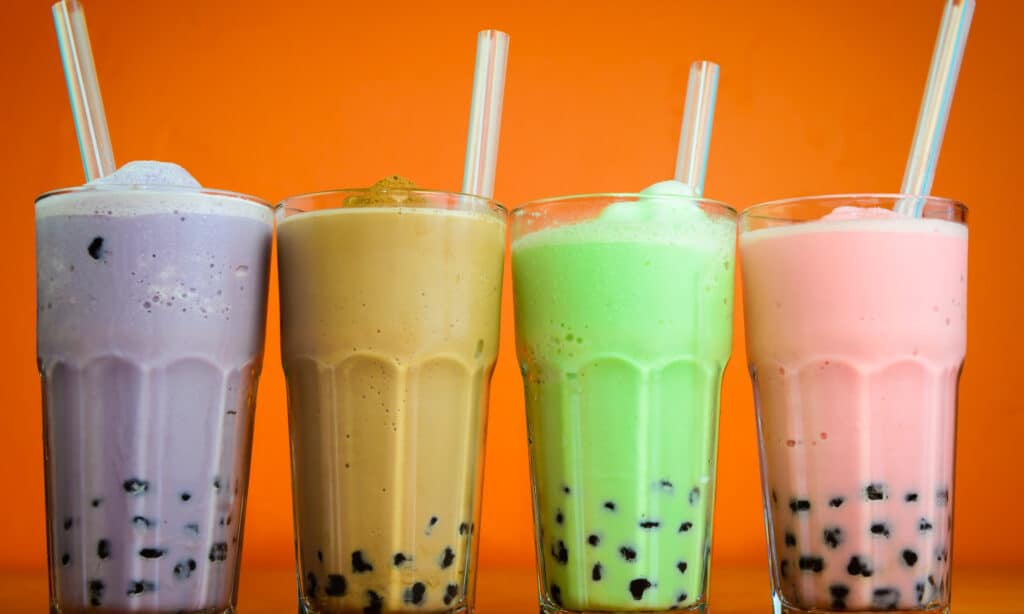
Safe Alternatives for Dog Treats
As pet owners, we love to treat our pets, but it’s essential to choose safe and healthy options for them. Here are some safe alternatives to boba for dog treats:
- Homemade dog treat recipes: One way to ensure that your dog’s treats are safe and nutritious is by making them yourself. Homemade dog treats allow you to control the ingredients and avoid any potential allergens or additives. You can find recipes online, ranging from simple peanut butter treats to complex options with fruits, vegetables, and protein sources. Just be sure to avoid any ingredients that are toxic to dogs, such as chocolate, grapes, and onions.
- Vet-recommended dog treats: Consult with your veterinarian for recommendations on safe and healthy dog treats. They can provide you with options that cater to your dog’s specific dietary needs or preferences. Vet-recommended treats are often formulated with essential nutrients and may cater to specific health conditions, such as weight management.
- Choosing healthy, store-bought dog treats: When purchasing dog treats from a store, look for options with natural ingredients and minimal additives. Opt for treats that are low in fat and sugar and made from high-quality protein sources. Check the label to ensure that the treats do not contain any artificial colors, flavors, or preservatives. You can also find grain-free or limited ingredient options for dogs with dietary sensitivities.
Providing your dog with safe and healthy treats is crucial for their overall well-being. Always prioritize your dog’s health and safety over indulging them with human treats like boba.
A Recipe to Try
Here’s a simple and healthy recipe for homemade peanut butter dog treats that your furry friend is sure to love:
Ingredients:
- 2 cups whole wheat flour (or use a grain-free alternative like coconut or almond flour for dogs with sensitivities)
- 1/2 cup rolled oats
- 1 tablespoon flaxseed meal (optional)
- 1 cup natural, unsalted peanut butter (make sure it does not contain xylitol, which is toxic to dogs)
- 2 large eggs
- 1/4 cup water (or more if needed)
Instructions:
- Preheat your oven to 350°F (175°C) and line a baking sheet with parchment paper or a silicone baking mat.
- In a large mixing bowl, combine the whole wheat flour, rolled oats, and flaxseed meal (if using).
- In a separate bowl, mix the peanut butter and eggs until well combined.
- Gradually add the peanut butter mixture to the dry ingredients, stirring until a crumbly dough forms. Add water, starting with 1/4 cup, and mix until the dough comes together. You may need to add more water, in small amounts, until the dough is workable but not too sticky.
- On a lightly floured surface, roll out the dough to about 1/4-inch thickness. Use cookie cutters of your choice to cut out shapes, or simply cut the dough into small squares.
- Place the treats on the prepared baking sheet, leaving a small space between each one. Bake for 20-25 minutes, or until the treats are golden brown and firm to the touch.
- Remove the treats from the oven and let them cool completely on a wire rack before serving to your dog.
Store the homemade dog treats in an airtight container at room temperature for up to a week. They will last in the refrigerator for up to two weeks. You can also freeze the treats for longer storage.
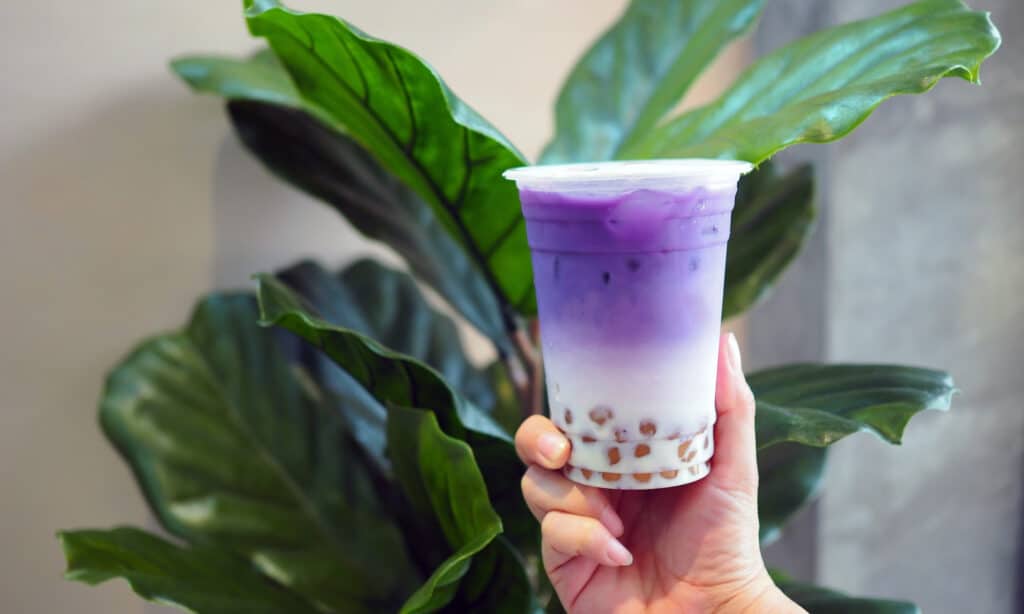
What to Do if Your Dog Eats Boba
If you suspect your dog has consumed boba, it’s essential to act quickly and take the appropriate steps to ensure their safety. Here’s what to do if your dog eats boba:
- Assess the situation: Determine the amount of boba your dog has consumed and observe them for any signs of distress. Keep an eye out for choking, coughing, difficulty breathing, vomiting, diarrhea, abdominal pain, or lethargy. If your dog displays any of these symptoms, it’s crucial to seek veterinary help immediately.
- Contact your veterinarian: Even if your dog isn’t showing immediate signs of distress, call your veterinarian for advice. They can provide guidance on whether you need to bring your dog in for a check-up.
- Monitor your dog closely: Keep a close watch on your dog for the next 24-48 hours, as some symptoms may not appear immediately. If you notice any changes in their behavior, appetite, or energy levels, or if they begin to show any signs of distress, contact your veterinarian right away.
- Prevent future incidents: To prevent your dog from eating boba or other potentially harmful human foods in the future, ensure that you keep such items out of their reach. Educate your family and friends on the dangers of feeding your dog inappropriate foods and always supervise your pet when they’re around food and drinks.
Remember that your dog’s safety and well-being should always be your top priority. If you’re ever in doubt or concerned about your dog’s health after consuming boba or any other potentially harmful substance, don’t hesitate to contact your veterinarian for guidance and assistance.
Preventing Accidental Boba Consumption
Preventing accidental boba consumption by your dog is essential to ensure their safety and well-being. Here are some tips to help you create a pet-safe environment and minimize the chances of your dog coming into contact with boba or other harmful human foods:
- Keep boba and other foods out of reach: Store boba drinks and food items in a secure location that your dog cannot access, such as high shelves or closed cabinets. When consuming boba, be mindful of where you place your drink to avoid accidental spills or easy access for your pet.
- Supervise your dog around food and drinks: Always keep an eye on your dog when they’re around food and drinks, especially during gatherings or parties. Be vigilant in ensuring they do not have access to boba or other potentially harmful human foods.
- Educate family members and friends: Inform your family members and friends about the dangers of feeding your dog inappropriate foods like boba. Make sure they understand the potential health risks and the importance of adhering to your dog’s regular diet and treats.
- Provide designated pet-safe zones: Create designated pet-safe zones in your home, especially during social events, to keep your dog separated from areas where food and drinks are being served. This can help minimize the risk of accidental boba consumption and exposure to other harmful foods.
By implementing these preventive measures, you can create a safe environment for your dog and significantly reduce the risk of accidental boba consumption. Remember, as a responsible pet owner, it’s your duty to protect your furry friend from potential hazards and ensure their overall health and happiness.
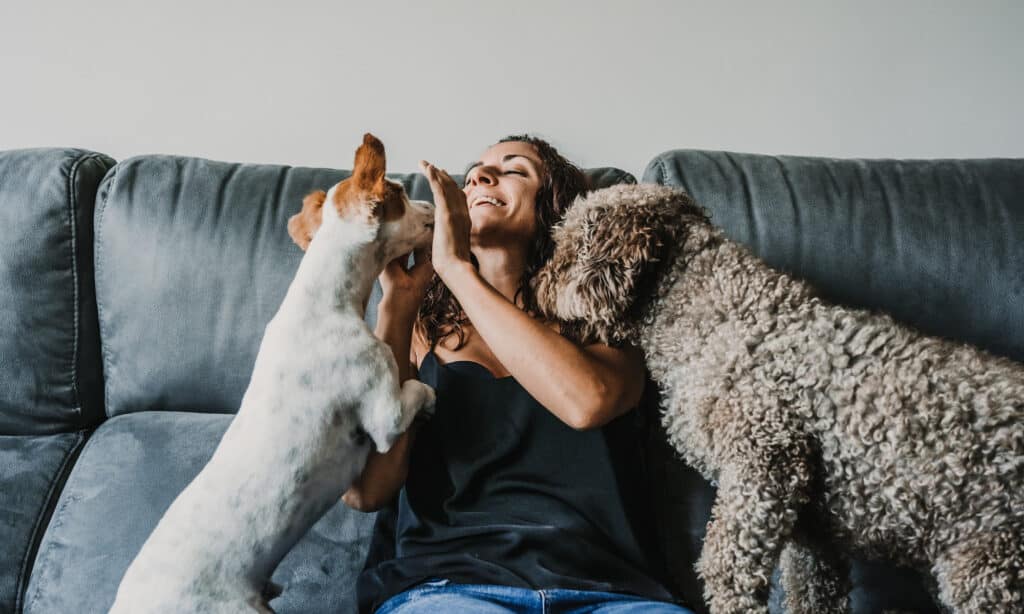
Conclusion
While boba drinks are a delightful and refreshing treat for humans, they are not suitable for our canine companions. The chewy tapioca pearls can pose choking hazards and lead to gastrointestinal blockages, while the high sugar content and potential allergens can negatively impact your dog’s health. By understanding the risks associated with boba and taking the necessary precautions to prevent accidental consumption, you can keep your furry friend safe and healthy.
Instead of sharing boba with your dog, opt for pet-friendly treats that cater to their dietary needs and provide essential nutrients. Homemade dog treats, vet-recommended options, or carefully chosen store-bought snacks are excellent ways to indulge your pet without compromising their well-being. If your dog ever consumes boba or any other potentially harmful substance, don’t hesitate to contact your veterinarian for guidance and assistance. As a responsible pet owner, your top priority should always be the safety, health, and happiness of your beloved canine companion.
~ Sheena
